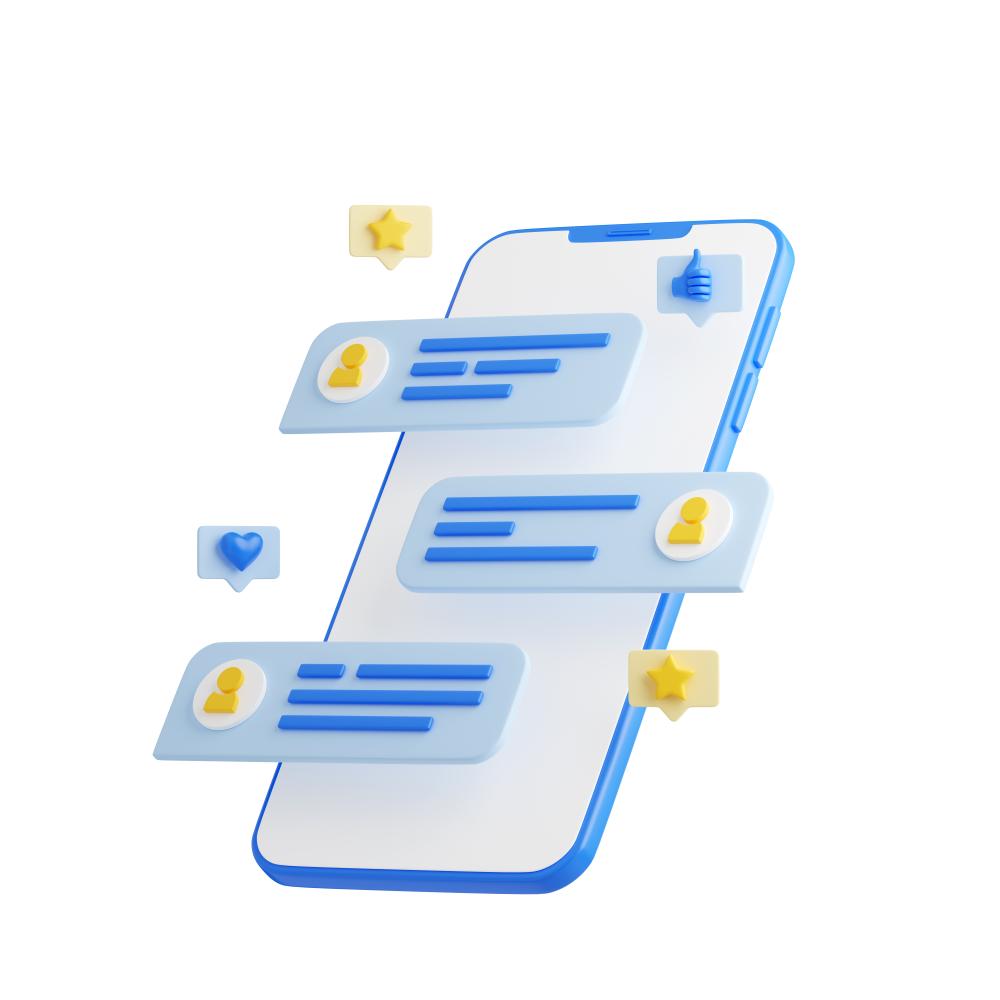
What is a Decentralized App?
A decentralized app, often abbreviated as dApp, represents a new frontier in the evolution of digital interactions, offering a distinct departure from traditional applications. Unlike conventional apps that rely on centralized servers, a decentralized app operates on a blockchain network, effectively distributing data across multiple nodes. This unique structure not only enhances security but also introduces an element of transparency that centralized applications struggle to achieve. By dispersing control, these apps eliminate single points of failure and reduce the risk of censorship, advocating for a more open digital ecosystem.
The concept of a decentralized app goes beyond mere technology, embodying a philosophical shift towards user empowerment and autonomy. Individuals using these apps retain control over their data, with transactions and interactions logged on a public ledger, ensuring authenticity and accountability. This model aligns with the growing demand for privacy and decentralization, responding to users’ concerns about data misuse and surveillance. As more people embrace the ideology of ownership in the digital space, decentralized apps are positioned at the forefront of this transformative movement.
Exploring the Advantages of Decentralized Apps
One of the standout benefits of decentralized apps is their enhanced security, a crucial factor in today’s digital landscape. Thanks to their reliance on blockchain technology, transactions and records within a decentralized app are immutable, meaning they cannot be altered or tampered with. This level of security is unprecedented and offers peace of mind to users who seek assurance that their data is safe from unauthorized access or cyberattacks. For those who have experienced the vulnerabilities of traditional applications, the shift towards decentralized apps comes as a welcome relief.
Another compelling advantage is the potential for innovation and creativity unleashed by decentralized app ecosystems. Developers can build and deploy applications without the need for intermediaries, allowing for a direct connection with their user base. This fosters an environment where creativity can thrive, as there are fewer barriers to entry and fewer restrictions on what can be created. As someone who once struggled with bureaucratic obstacles in traditional app development, I find the decentralization ethos refreshing, as it champions the freedom to innovate without constraints.
Decentralized apps also align beautifully with the emerging trend of token economies, where users are rewarded for their contributions and participation. In these ecosystems, users can earn tokens, representing value, that are native to the app. This effectively creates a self-sustaining economy within the app, where users are incentivized to engage and contribute, reinforcing a sense of community and shared ownership. For those who desire a more equitable digital experience, decentralized apps offer a compelling alternative.
Real-World Applications and Potential Challenges
The practical applications of decentralized apps are vast and continuously expanding into various sectors. In the financial industry, for instance, decentralized finance (DeFi) apps are revolutionizing traditional financial services by providing decentralized lending, borrowing, and trading. These apps offer financial services without intermediaries, reducing costs and increasing accessibility for users worldwide. Similarly, decentralized apps in the gaming industry are transforming how players interact with in-game assets, providing true ownership through NFTs and enabling peer-to-peer trading of digital assets.
Despite their numerous benefits, decentralized apps are not without challenges. Scalability remains a significant hurdle, as blockchain networks struggle to handle the transaction volumes required for mass adoption. As someone who closely follows the tech industry, I have observed that while the potential for disruption is significant, the technology must evolve to meet the demands of a growing user base. Improving transaction speeds and reducing energy consumption are critical areas of focus for developers striving to make decentralized apps a viable option for everyday use.
Moreover, user experience is another area that requires attention. The complexity of decentralized applications can be daunting for those unfamiliar with blockchain technology, potentially hindering broader adoption. Streamlining the user interface and enhancing usability is essential to ensure that these apps are accessible to a wider audience. As the ecosystem matures, efforts to demystify decentralized apps and make them user-friendly will be paramount to their success.
The Future of Decentralized Apps
Looking ahead, the trajectory for decentralized apps points to a future brimming with possibilities and innovations. Their potential to redefine industries, enhance privacy, and empower individuals is unparalleled in the current digital landscape. As the underlying technology continues to evolve, so too will the applications and services built on these platforms. With continuous advancements in blockchain technology, decentralized apps are poised to become integral components of our digital lives.
For organizations like #HashtagSpace, the opportunities presented by decentralized apps are immense, offering a chance to lead the charge in a rapidly changing digital environment. By embracing these technologies, companies can position themselves at the cutting edge of innovation, providing services and solutions that cater to the evolving needs of users in the Web3 era. The decentralized app revolution is not just inevitable; it’s already underway, and those ready to adapt and embrace this new paradigm stand to benefit immensely from the shift.
As more users become aware of the advantages of decentralized apps, it seems inevitable that they will become a staple in the toolkit of digital enthusiasts and professionals alike. The journey toward widespread adoption will undoubtedly face obstacles, but with perseverance and innovation, decentralized apps have the potential to transform the very fabric of digital interaction, paving the way for a more equitable and connected future.

The Rise of Decentralized Chat Apps
In the ever-evolving landscape of digital communication, the Decentralized Chat App has emerged as a revolutionary player. Unlike traditional messaging platforms that rely on centralized servers, these apps distribute data across numerous nodes, ensuring data sovereignty and resisting censorship. They offer users a level of privacy and control that is hard to achieve with mainstream alternatives. In an era where data breaches and privacy invasions are rampant, the appeal of such apps is undeniable.
Decentralized Chat Apps are not just about privacy; they also promise greater resilience against technical failures. By eliminating a single point of failure, these applications can maintain uptime even when parts of the network are compromised. This redundancy is particularly appealing in regions where internet stability is a concern. A few years back, I encountered network disruptions during an international project, and switching to a decentralized platform ensured our team remained connected seamlessly.
Users are also drawn to the community-driven nature of Decentralized Chat Apps. Open-source development allows for transparency and user contributions, fostering a sense of ownership and trust. This intrinsic collaboration aligns with the values of the Web3 movement, where the internet is envisioned as a decentralized entity owned by its users. As someone who has worked in tech startups, the energy and innovation seen in these communities are reminiscent of the early days of tech entrepreneurship, offering a glimpse into future technological trajectories.
Exploring the Benefits and Challenges
The benefits of using a Decentralized Chat App are numerous, starting with enhanced security. By encrypting messages on individual devices rather than on a server, these apps significantly reduce the risk of interception. For individuals and organizations alike, this peace of mind is invaluable, especially in industries like finance and healthcare where confidentiality is paramount.
However, it’s not all smooth sailing in the world of Decentralized Chat Apps. These platforms often face hurdles in terms of user experience and scalability. The need for users to maintain their own data can be daunting for those accustomed to the seamless backups offered by traditional services. As one who has guided clients through technology transitions, the importance of user-friendly interfaces cannot be overstated; even the most robust system can falter if usability is not prioritized.
Another challenge is the potential for slower data transmission, as messages traverse a complex web of nodes rather than a direct server path. Innovations in peer-to-peer networking are continually addressing these issues, but they remain a consideration for those contemplating a switch. As technology advances, these hurdles are likely to diminish, paving the way for broader adoption.
Despite these challenges, the Decentralized Chat App represents a pivotal shift towards more secure and autonomous digital communication. As mainstream providers grapple with privacy concerns, the demand for decentralized solutions continues to grow. This momentum is a testament to a global population increasingly aware of and unwilling to compromise on their digital rights, marking the dawn of a new era in communication technology.
The Future of Decentralized Chat Apps
Looking ahead, the future of the Decentralized Chat App seems promising, driven by advancements in blockchain technology and peer-to-peer networks. These innovations are setting the stage for more efficient and user-friendly platforms, potentially expanding the market beyond current tech-savvy enthusiasts. Visionaries in the tech industry are betting on these apps to become mainstream, catalyzing a shift from centralized to decentralized systems on a much larger scale.
Furthermore, as more individuals and businesses recognize the importance of true digital ownership, decentralized platforms stand poised to offer competitive advantages in personalization and customizable user experiences. Imagine a world where your digital identity is fully under your control, no longer at the mercy of third-party platforms. Such a future is not just enticing; it’s increasingly within reach, thanks to the transformative potential of Decentralized Chat Apps.
Exploring the World of Decentralized Messaging Apps
The transition from centralized to decentralized messaging apps has become a talking point for internet users and privacy advocates alike. At the core of decentralized messaging apps lies the principle of distributing power and control away from a single point of authority. This technological shift promises enhanced privacy and resistance to censorship, addressing growing concerns over data security and corporate control in the digital age.
Decentralization ensures that data is not stored on a single server but is instead distributed across multiple nodes. This architecture makes it harder for malicious actors to compromise user data, providing an added layer of protection. Individuals with experience in cybersecurity have witnessed firsthand how decentralized messaging apps can thwart potential data breaches, offering users peace of mind in safeguarding their personal information.
Many see this technology as a democratizing force, empowering users by granting them more control over their own data. In a world where privacy is increasingly under threat, decentralized messaging apps serve as a sanctuary for those who value their digital freedoms.
Navigating the Features of Decentralized Messaging Apps
Decentralized messaging apps come with an array of features that differentiate them from their centralized counterparts. Encrypted messaging, for instance, is a standard offering that ensures only the intended recipient can read the messages. This is particularly salient for professionals handling sensitive information who require assurance that their communications remain private and secure.
Another key feature includes the absence of a single point of failure, making these applications exceptionally resilient. During episodes of internet censorship or large-scale outages, decentralized platforms have demonstrated remarkable reliability, much to the relief of their user base. Users recount tales of uninterrupted communication during crises, highlighting the robust nature of decentralized messaging apps.
The versatility of decentralized platforms extends to integrations with blockchain technology. This combination offers the potential for seamless cross-platform interactions and even financial transactions, adding another layer of utility for users who engage in digital commerce. The growing trend of crypto adoption has only fueled interest in these applications, with individuals eager to explore its myriad capabilities.
Embracing Decentralized Messaging Apps for a Modern Era
Adopting decentralized messaging apps is not merely about privacy; it’s also about redefining the way we communicate on the digital frontier. For those immersed in the Web3 ethos, these platforms are an extension of a broader movement towards a decentralized internet. By choosing decentralized messaging apps, users not only secure their personal communications but also align themselves with a future looking to break away from traditional power structures.
Individuals across the globe are embracing these applications as tools for self-expression without the worry of external surveillance. For communities fighting oppressive regimes, decentralized messaging apps serve as vital communication channels, protecting members against potential oppression. Personal stories emerge, illustrating how these technologies inspire freedom and resilience in the face of adversity.
The increasing shift towards decentralization can be seen not just as a trend but as a necessary evolution. Those at the forefront of technological advancement understand that embracing decentralized systems will pave the way for a more equitable digital ecosystem. As decentralized messaging apps continue to gain traction, they stand testament to an ongoing revolution that promotes autonomy and security in the online world.
#HashtagSpace’s commitment to these innovations exemplifies the future of digital interaction, championing the cause of decentralization. By championing decentralized technologies, they offer users the tools to navigate this brave new world with confidence and security.

What does it mean for an app to be decentralized?
A decentralized app, or dApp, signifies a departure from traditional application models by eliminating the need for centralized control. They operate on a blockchain network, spreading data across various nodes, which enhances both transparency and security. Imagine a world where every time you send data, it’s not stored in just one place but is distributed across a network, making it nearly impossible for unauthorized tampering. This model aligns with the growing demand for digital autonomy, as users retain control over their own data instead of entrusting it to a central authority. As technology continues to evolve, the appeal of such autonomy grows, raising intriguing questions about the future trajectory of digital applications.
Are decentralized apps safe?
Decentralized apps are generally considered safe due to their reliance on blockchain technology, which ensures that all records and transactions are immutable and secure. However, the level of security also depends on the network’s underlying infrastructure and how well it is maintained. Consider a secure vault that only you have the key to, but the vault is in a building where the foundation needs consistent checks to avoid cracks. It’s also important to remain vigilant against scams and poorly coded smart contracts, as these can introduce vulnerabilities. Exploring how different blockchain networks prioritize security can offer insights into selecting the safest platforms for deploying dApps.
Is Bitcoin a decentralized application?
Bitcoin itself is not a decentralized app but rather the foundational blockchain that paved the way for dApps. It operates as a decentralized digital currency, enabling peer-to-peer transactions without intermediaries. Imagine a digital ledger that everyone can see but no single entity can control or alter–this is the essence of Bitcoin. While it showcases the power of decentralization, the applications built on top of blockchains like Bitcoin are what constitute decentralized apps. Understanding the distinction between a blockchain and the apps built on it can provide clarity on how decentralized systems function in different contexts.
What is the difference between centralized and decentralized apps?
Centralized apps operate under the control of a single entity or server, making them susceptible to points of failure and potential censorship. In contrast, decentralized apps distribute control among a network of nodes, offering increased security and transparency. Think of centralized apps as a single-threaded server processing requests from users, while decentralized apps are like a vast network of independent servers working in tandem to process the same requests. This decentralization helps eliminate single points of failure, enhancing the app’s resilience against attacks. For those considering the transition to decentralized systems, it’s worth pondering how this shift might affect user autonomy and data privacy.
What are Decentralized Chat Apps?
Decentralized chat apps offer an alternative to traditional messaging platforms by distributing data across numerous nodes, enhancing privacy and resisting censorship. They bring a new dimension to digital communication, ensuring that conversations remain secure and private, a vital consideration in an era marked by frequent data breaches. Imagine having a private conversation where only you and the recipient have the means to access the exchanged messages, a stark contrast to traditional apps where a central server holds your data. As people increasingly value privacy, these apps offer a secure haven, challenging traditional norms of digital interaction.
What are Decentralized Messaging Apps?
Similar to chat apps, decentralized messaging apps offer enhanced security by ensuring that messages are encrypted on users’ devices rather than on a central server. They provide a robust solution to privacy concerns, empowering users to maintain control over their communications. Visualize a network where messages traverse a secure path of nodes, akin to a courier delivering letters directly to the recipient, bypassing central post offices. As blockchain and peer-to-peer technologies advance, these apps become increasingly appealing, especially for those prioritizing digital sovereignty. What’s your take on the balance between convenience and privacy in digital communications?
